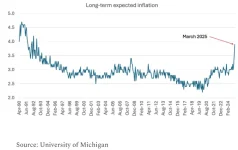He represents it? He's bringing these agencies back to the gold standard science.
Nothing wrong with companies helping to sponsor conferences.
From the nonsense x account you posted:
And why is the FDA giving Stanford $50 million dollars to study the FDA - with Stanford then taking money from pharma companies to sponsor this research.
This guy either has no clue or he’s just lying. Take your pick.
Stanford and the other CERSI grantees are not “studying the FDA.” They are doing research that the FDA has requested because they believe it will help the FDA do their job more efficiently. They have asked the Universities to do the work because it requires special expertise. Here are some examples of the work being done:
Technological Innovations to Evolve Regulatory Decision Making
The complexity and convergence of technologies and their applications have continued to accelerate, outpacing efforts to evaluate or optimize their design and use. For example, the emerging field of in silico trials—or computer simulations of how medical interventions interact with human anatomy, physiology, and pathological processes—represent a crucial advancement in regulatory science with transformative implications.
The ability to use digital twins as virtual study “participants” would signify a paradigm shift in how we assess the safety and efficacy of interventions. In partnership with the FDA, researchers at the Triangle CERSI address knowledge gaps in these emerging areas to help the agency adapt and innovate.
Solutions to Harness Data, Augment Quality and Modernize Clinical Trials
There is an imperative for novel, efficient, transparent, and validated methods to augment regulatory science. Those include the evaluation of autonomous AI, interpretability and transparency of AI methods, task-based quantification, and validating the accuracy and effective use of real-world evidence.
Triangle CERSI specializes in creating and testing new methods to find optimal treatment approaches and to identify groups of patients who are most likely to benefit—or experience harm—from therapies. Our specialization in Bayesian methods, causal inference, digital health, AI, and machine learning support improved regulatory decision making, particularly in rare diseases as well as cardiovascular, oncologic and pediatric trials.
Bribes…ridiculous right wing anti science propaganda.



